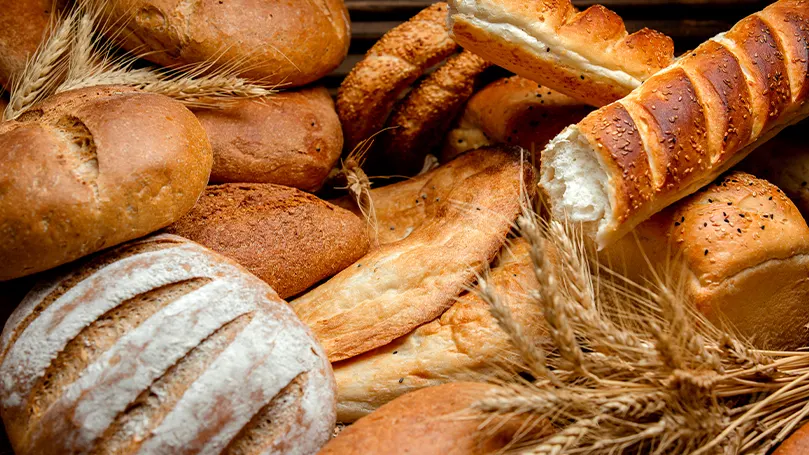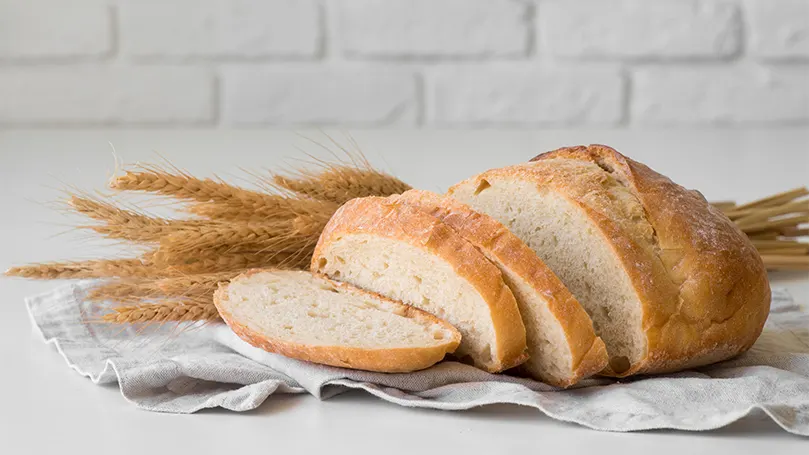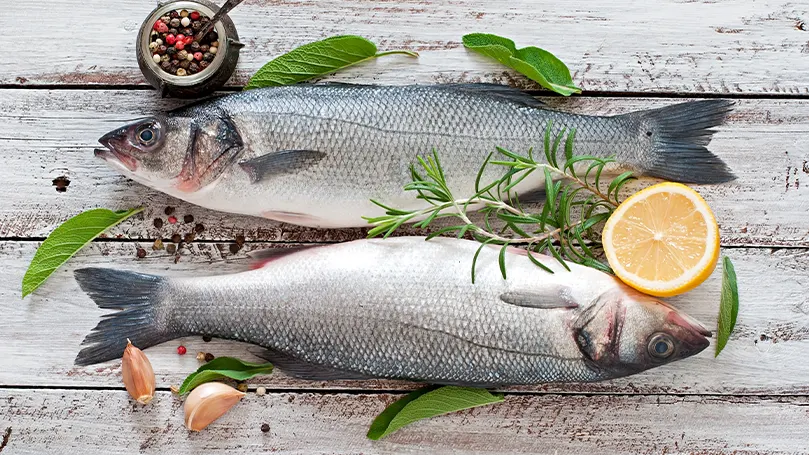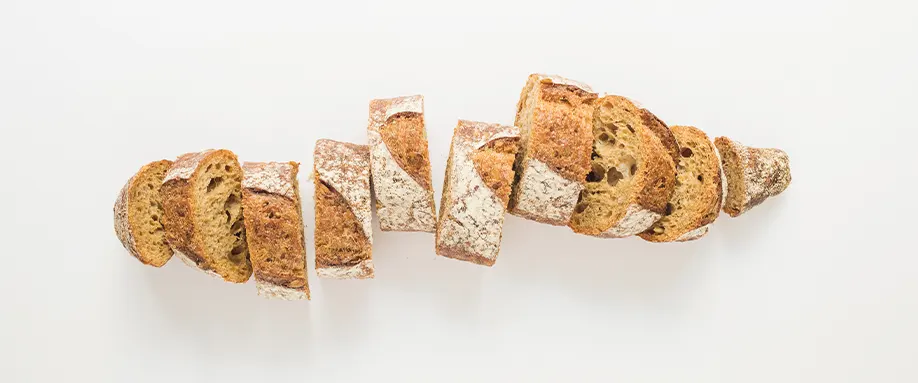Benefits of eating bread
Bread is a great source of fibre and protein, whilst being low in fat. However, it does vary between the type of bread so this is something you will need to be aware of. They also contain various vitamins and minerals that help release energy from food. Eating bread fuels the body and is a great food to have to burn energy for longer. This then helps to keep you fuller for longer too. Choosing to eat bread doesn't necessarily help you with weight loss. However, because it keeps you full, it can stop you from overeating which can cause you to lose weight.
Whole wheat bread
Whole wheat bread can help lower cholesterol levels and reduce the risk of high blood pressure. It is a healthy choice of bread but that is not to say if you eat too much it will lead to weight gain (as with too much of any food). Everything in moderation and with balance. On the other hand, it does keep you fuller than other food so has the ability to help with weight loss.
Eating whole wheat bread can lower the risk of heart disease, diabetes and other health issues.
Brown bread
Brown bread is another healthy choice because it is a blend of whole grains and wheat. It is full of fibre and a source of nutrients. Eating brown bread helps to maintain blood sugar levels and regulate bowel movement. Another bonus is that it is low in calories.
The health benefits include reducing the risk of diabetes, heart problems, hypertension and obesity.

White bread
On to white bread, which has calcium in it to keep your bones and teeth healthy. It is low in fibre making it easier on the stomach and for digestion. However, it is not the healthiest choice of bread.
Sourdough bread
Lastly, we are going to mention sourdough bread. This option contains less gluten and provides healthy bacteria for the body. It has been found that sourdough can be more nutritious and easy to digest. If you choose to eat this one as a bedtime snack, it is not the worst because it has anti-inflammatory grains and is less likely to spike someone's blood sugar levels.
This one can be seen as the best option to eat.
Why shouldn't you eat bread before bed?
Some types of bread can cause high blood sugar levels, or at least cause them to spike, and that is not what you want before you fall asleep. When this happens your sleep quality can be affected, making it difficult to fall asleep and/or stay asleep. You may find it harder to relax and wind down because it can give you a burst of energy, leading to poor sleep or even sleep apnea.
While weight gain is not directly linked to eating before bed, it is best to allow yourself an hour or two between eating and sleeping. At night your body calms and slows down ready to fall asleep. Therefore, you can have a slower metabolism so foods high in carbs can be harder to digest in the evening. In turn, this can lead you to gain weight.

What can you eat before bed?
Your last meal of the day should be a few hours before going to sleep, especially for those with acid reflux (experiencing a burning sensation in the back of your throat) and should avoid large meals too close to sleep. However, it is not good to go to bed hungry so you should find the perfect small snack to have. A healthy snack is always better than a sugary treat because you do not want to have a burst of energy just as you are going to fall asleep. Healthy snacks can help your hunger and help you fall asleep.
We recommend that you avoid drinking energy drinks or any caffeine consumption. Although dark chocolate is usually seen as a healthy option, it is suggested that you do not eat it before sleeping as it contains caffeine.

So, what can you have?
A good choice of drink would be a warm glass of milk, preferably low-fat milk. It warms you up in the evening to make you feel sleepy.
Now on to certain foods that you can eat at night. Obviously, milk is not going to fill you up when you are hungry or help your cravings. So, if you are in need of a little snack, we recommend tryptophan-rich foods. This includes white meat (turkey and fish), pumpkin seeds, some fruits and more. Tryptophan is an amino acid that encourages serotonin and melatonin production. They are able to support your circadian rhythm and sleep patterns to promote sleep quality. You need food that will induce sleep and give you better sleep overall, which is exactly what these types of foods do. If you are after salty snacks, opt for a handful of nuts. Needing something sweet? Try eating berries and yoghurt.
Are you wanting something savoury? Well, you can have a small number of complex carbs to relieve your hunger pangs. Like a slice of toast. Ideally, you do not want to choose white bread as it can cause blood sugar to spike – and as we mentioned earlier, that is not going to lead to restorative sleep.
Conclusion
Overall, a bedtime snack or eating before bed should be avoided unless you become hungry and that is likely to keep you up at night. You shouldn't go to bed hungry so you should opt for a light, healthy snack to eat before bed. Also, it is best to eat your dinner early, especially if you are eating a big meal as it gives you time for it to digest before you lie in bed. Nighttime eating is should be avoided as much as possible.
There are the obvious foods to avoid eating – sugary foods, spicy foods, acidic foods and fried foods. While bread before bed is not the food to eat, it most definitely is not the worst thing to choose. How food reacts is down to the individual, what works for one person may not work for someone else. Only you know how your body responds to certain foods but it is good to have an understanding of what to look out for.













There are no comments yet
"*" indicates required fields